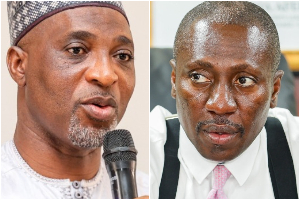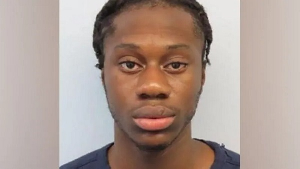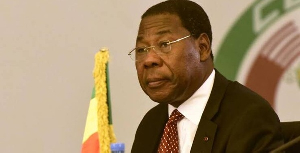By Stephen Okai Aboagye
Access to Justice is crucial in any democracy. Whatever rights and responsibilities exist, they are of no value unless it is possible for all to access the law and the courts in order to ensure that those rights and responsibilities are fully observed. Legal aid has therefore become an essential element of democratic societies. Legal aid is the provision of legal assistance to indigent persons who cannot afford legal representation in court. Legal aid guarantees equal access to justice for all. The concept of legal aid is expressed in international human rights legal instruments such as the Universal Declaration of Human Rights (UDHR), 1948 and the International Covenant on Civil and Political Rights (1CCPR), 1966.
In this write-up, I would be discussing legal aid and its challenges and the way forward at ensuring the provision of ‘true legal aid’ for the poor in Ghana. Obtaining the services of a lawyer in Ghana is generally expensive. The fees prescribed by the Ghana Bar Association for lawyers to charge clients for services I believe are unrealistic considering the general economic situation in the country. For instance, initial consultation fees alone for: (i) Senior Counsel, who is 10 years or more at the Bar is GH¢500.00 maximum (ii) Counsel who is between 5 to 9 years at the Bar is GH¢375.00 maximum and (iii) Junior Counsel under 5 years is GH¢250.00 maximum. The fee to be charged for bail application is between GH¢2,500.00 to GH¢5,000.00. For misdemeanor trials between GH¢5,000.00 to GH¢10,000.00. Furthermore, for felony trials it is between GH¢10,000.00 to GH¢20,000.00 and for indictable trials between GH¢20,000.00 to GH¢50,000.00. Even an amount of between GH¢10,000.00 to GH¢20,000.00 is the charge for criminal watching briefs. I believe many lawyers will agree with me that these rates are out of reach as many clients cannot afford. No wonder many persons have to suffer injustice because they cannot afford the litigation expenses and end up giving the matter to God. This is why legal aid is necessary. A person must not suffer injustice because he cannot afford legal representation.
I would define ‘true legal aid’ as free of charge representation by a lawyer to persons who cannot afford legal services. It includes such assistance as is given by a lawyer, in the steps prelude or incidental to any proceedings or arriving at or giving effect to a compromise to avoid or to bring to an end any proceedings. There is free lawyer consultation and filing of documents in court is at no cost. In fact, the whole process of prosecuting a case in court must be without charge and the indigent litigant or accused person or his relatives and friends must not be made to pay a dime for the services rendered. This is the ideal situation and the best practice as pertains in the developed world.
Of course, some will argue that there is nothing free under the sun and that the indigent litigant or the accused and his family must bear part of the litigation expenses which is somehow a valid argument and so it is not uncommon for lawyers, NGOs and legal aid providers to demand monies from poor clients and family for especially filing of documents in court. The Legal Aid Scheme is supporting organizations in this regard by endorsing applications for filing in court. The official stamp of the Legal Aid Scheme ensures that the documents are exempt from the payment of filing and other fees and legal aid providers must take advantage of this opportunity and offer true legal aid to the public.
Article 294 of the 1992 Constitution of Ghana provides for legal aid. In pursuance of the constitutional provision, the Legal Aid Scheme Act, 1997 (Act 524) was passed and the Legal Aid Scheme was established. The State provides legal aid to indigent litigants through the Scheme. Ghana Legal Aid Scheme is a public service organization within the justice delivery system of Ghana. It is one of the component institutions over which the Ministry for Justice has oversight responsibility. The Scheme operates countrywide from ten (10) offices in all the Regional capitals. The Scheme is tasked under the Legal Aid Scheme Act 1997 (Act 542) to provide legal assistance to the poor and indigent, as well as other persons in the prosecution and defense of their rights under the Constitution of Ghana.
Who is entitled to legal aid under the Scheme? According to Section 2 of the Act, a person is entitled to legal aid in connection with any proceedings relating to the Constitution if he has reasonable grounds for taking, defending, prosecuting or being a party to the proceedings. A person shall also be entitled to legal aid if he earns the government minimum wage or less and desires legal representation in any criminal matter or civil matter relating to landlord and tenant, insurance, inheritance with particular reference to the Intestate Succession Law, 1985 (P. N. D. C. L. 111), maintenance of children and such other civil matters as may from time to time be prescribed by Parliament or if in the opinion of the Board the person requires legal aid.
A person who wants to benefit from the scheme has to apply to the nearest office of the Ghana Legal Aid Scheme Board. He or she is made to complete a form providing such details such as his full name, age, address, occupation, income, property owned, marital status, number of children and other dependents. Furthermore, the applicant must indicate whether he has ever applied for legal aid under the scheme and must state the nature of the case for which legal aid is sought. The information is to ascertain that the applicant genuinely does not have the financial means to go to court for the redress he or she is seeking.
If preliminary questioning and further investigations prove beyond reasonable doubt that the applicant genuinely needs aid, the necessary process is set in motion. Where the officials feel that litigation is not necessary, they advice the applicant to have the matter settled out of court. The other party to the case may be invited, if necessary, for this purpose. Arbitration or any other form of amicable settlement is also resorted to. Where arbitration fails, the case may go to the courts. The applicant does not pay any fees to the lawyer even if the case is pursued all the way to the Supreme Court. After the final determination of the case the lawyer submits his bills to the Regional Director of the Legal Aid Board who, in turn, submits the bills to the national headquarters in Accra for payment. Under the Courts (Amendment) Act 2002, the Supreme Court, the Court of Appeal, the High Court or a Regional Tribunal may assign a Lawyer by way of legal aid and may do so with prior approval of the Chief Justice.
The State funded Legal Aid Scheme is however woefully under-financed and ill-equipped to make any meaningful impact. In fact, I have heard the Director of the Scheme a number of occasions on air complaining about the problem and calling for more funding for the Scheme. Regarding personnel, Section 22 of the Legal Aid Scheme Act provides that, the National Service Board shall assign to the Board such lawyers liable to do national service as the Board may request. It further provides that, the Bar Association of each region shall with the approval of the General Council of the Bar, select legal practitioners who shall, subject to the approval of the Board, make their services available to the Scheme.
Therefore it is obvious that originally the Scheme intended to rely on lawyers on national service and from the Bar Associations to provide legal aid for poor litigants, which meant that there would be a pool of lawyers to provide legal aid for the poor across the country but that has not materialized. Most of the few volunteer lawyers are also concentrated in Accra and Kumasi and other regions especially the northern regions are lacking legal aid lawyers. The National Service Scheme must ensure that some of the new lawyers who pass out of the Ghana School of Law and have not done their national service are posted to the Legal Aid Scheme to help solve their personnel problem. The Scheme in the future needs to establish offices even at the district capitals countrywide. Legal aid organizations such as Helplaw Ghana need to be commended for complementing the effort of State in the provision of true legal aid to the poor even though such organizations have their own funding challenges.
In conclusion, lawyers aside their duties to their clients and to the courts have a duty to the society to uphold justice. All lawyers must consider it a moral and social responsibility to offer pro bono legal services to indigent litigants and accused persons. Even though the Ghana Bar Association encourages lawyers to offer pro bono legal services, I think it is high time it is made mandatory, just as physicians working in emergency rooms are required to treat all patients regardless of ability to pay. Mandatory pro bono obligations ought to be required of all lawyers, before renewal of license to practice law in Ghana. The Legal Aid Scheme must be well resourced by the State to provide true legal aid to indigent litigants and accused persons. NGOs providing legal aid are encouraged to render ‘true legal aid’ to the poor, whiles donor agencies are encouraged to provide more funding for their work. Those who are fortunate to be within the chamber of justice and must do justice to all persons. As rightly pointed out by Martin Luther King Jnr. ‘injustice anywhere is a threat to justice everywhere’.
The writer is a Human Rights Advocate
and works with Helplaw Ghana(a private Legal Aid Provider)
Aboagyeaka@yahoo.com
0205827490
Opinions of Saturday, 21 May 2016
Columnist: Aboagye, Stephen Okai














